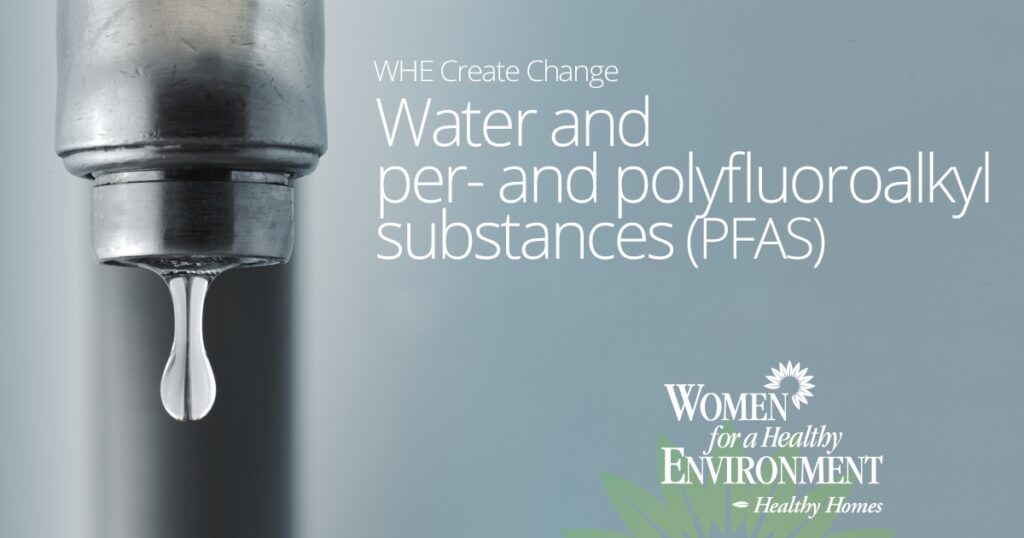Written by Abdul Alobireed, WHE Environmental Health Fellow and Public Health PhD candidate at University of Pittsburgh
On July 16th, McKeesport, PA residents were advised to not use their tap water for any purpose following a fire in the community. It was believed that more than 500 homes could have water contaminated with PFAS, a toxic class of chemicals that had been released from a chemical-based firefighting foam, known officially as aqueous film-forming foam (AFFF). This type of foam has been used for decades because it creates a blanket that cuts off the fuel from the oxygen it needs to burn. However, evidence from EPA and scientific research shows that the released PFAS chemicals have been associated with many adverse health effects including:
- Developmental effects to fetuses during pregnancy or to breastfed infants (e.g., low birth weight, accelerated puberty, skeletal variations),
- Cancer (e.g., testicular, kidney),
- Liver effects (e.g., tissue damage and enzyme changes),
- Immune effects (e.g., decreased vaccine response in children), and
- Thyroid effects (e.g., increased cholesterol levels).
PFAS, short for per- and polyfluoroalkyl substances, are a large group of manufactured substances that do not occur naturally in the environment and are resistant to heat, water and oil. They have been referred to as “Forever Chemicals” because they do not break in our environment. The PFAS chemical structure consists of a carbon-fluorine bond that is incredibly strong and hard to break. Ultimately, this class of chemicals accumulates in our bodies and cause harm over time. PFAS are not only forever chemicals, they are “EVERYWHERE chemicals”.

Currently, the Environmental Protection Agency has health advisories, but they are non-enforceable and non-regulatory. Some states, however, took the initiative and moved forward with rules and regulations to ban the use of this fluorine-contained foam.
Yesterday, the federal government broke their silence. The U.S. House of Representatives passed the PFAS Action Act of 2021 that requires EPA to set drinking water standards for the two most documented PFAS (PFOA and PFOS) and consider PFAS a “hazardous substance” in Superfund sites. Statewide bans of PFAS-containing firefighting foams were recently passed in Connecticut, California, Washington, and New York.
The McKeesport incident follows many others. As early as 1992, PFAS contamination has been found at the Pittsburgh Air Reserve Station in Coraopolis, Pittsburgh Air National Guard Base in Moon Township, Neville Township, and Pittsburgh International Airport and likely nearby communities. The question exists – How long must we put our communities at risk until we ban this foam?
Fluorine-free foams have been around for a long time, but there are safer, reliable alternatives. As of April 2019, there were more than 100 fluorine-free foams that have met various internationally accepted certifications and approvals, available from 24 manufacturers (1). With these safer alternatives, regulatory protections must be enacted to ban the use of AFFF foams for the protection of firefighter health, as well as local drinking water sources.
In the meantime, until the state legislature introduces and passes such legislation, it is critical that fire training academies and fire departments immediately adopt safer alternatives and voluntarily halt the use of Class B Foam under any circumstances, including training exercises. This move will prevent firefighters themselves from occupational exposure and protect the public’s health during fire suppression.
Also this week, we learned that PFAS has been found in fracking fluids (2). There were more than 1,000 wells in six different states affected by oil and gas activities including fires and spells. The PFAS in fracking operations is significantly threatening the oil-field employees and nearby people and communities.
In November 2020, Mr. Rob Bilott, internationally-recognized attorney, author and inspiration behind the movie Dark Waters, presented at a Women for a Healthy Environment sponsored program. Mr. Bilott shared his legal battle exposing a corporate cover-up by DuPont that exposed the failings of environmental regulation and release of the toxic chemical PFAS into the waterways of Parkersburg, WV. You can access Mr. Bilott’s presentation here.
In the US, there are approximately 500 industrial sites known to produce or use the toxic PFAS (3). Chemical companies often knowingly develop products that cause serious harm to human health and our environment, and no one appears to question the efficacy and safety of these products until people die or are seriously harmed. There is a need for strict regulation of these companies. Profit cannot ever come before people and our environment.
References:
- It’s Time To Switch to PFAS-Free Firefighting Foams: https://www.ewg.org/news-insights/news/its-time-switch-pfas-free-firefighting-foams
- PFAS Nation: Toxic Discharges Suspected From Almost 500 Industrial Facilities Across U.S.: https://www.ewg.org/news-insights/news/pfas-nation-toxic-discharges-suspected-almost-500-industrial-facilities-across
- P.A. Approved Toxic Chemicals for Fracking a Decade Ago, New Files Show: https://www.nytimes.com/2021/07/12/climate/epa-pfas-fracking-forever-chemicals.html
Other resources:
- Shale Gas Development and Infant Health: Evidence from Pennsylvania: https://www.ncbi.nlm.nih.gov/pmc/articles/PMC6629042/
- PFAS Contamination of Water: https://health.ri.gov/water/about/pfas/
- EPA FACT SHEET: Protecting Public Health and Addressing PFAS Chemicals: https://www.epa.gov/pfas/fact-sheet-protecting-public-health-and-addressing-pfas-chemicals





